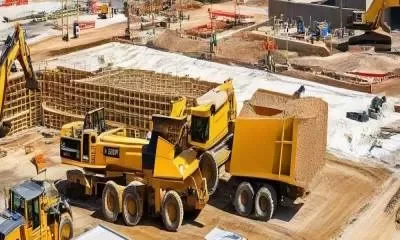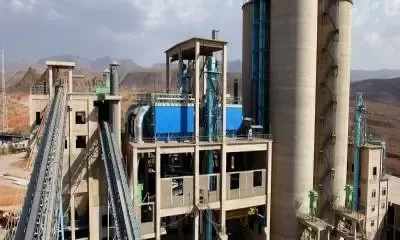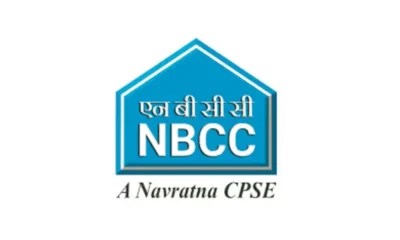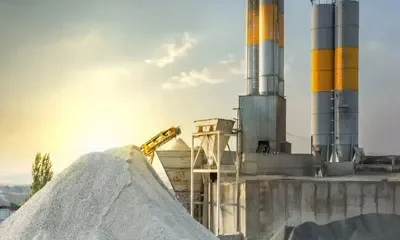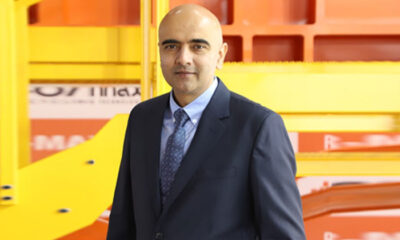Economy & Market
Mediation in real estate sector
Published
8 years agoon
By
admin
Implicit or explicit agreements are a way of human life; contracts, written and unwritten, pervade our day to day lives, and govern our relationships, interactions and transactions. And, as long as there will exist contracts, there will be scope of disagreements and disputes, simply because, no agreement can be so detailed as to cover all possibilities and connotations, and close all loopholes for disputes. Conflicts inevitably arise due to opposing interpretations of open-ended or subjective clauses, occurrence of unforeseen events, situations going beyond the control of either party, loss of trust, bankruptcy, inadequate upfront disclosures and such other issues. Disputes fester until resolved, and therefore, dispute resolution mechanisms assume great relevance in our lives, businesses and society as a whole.
Historically, in India we have been too much over dependent on the formal justice systems, meaning the courts, and have somehow not given alternate/informal resolution of disputes the place that these deserve. May be this is due to the hangover of our colonial legal systems, or perhaps due to absence of enabling legislation or even due to our cultural biases. In any case, the result has been a huge backlog of cases in civil suits and criminal cases clogging up the judicial pipeline up to the Supreme Court, leading to the unfortunate phenomenon of justice being inordinately delayed, and thus effectively denied.Real estate/construction sector:The context
The total number of cases pending in our courts is in excess of three crore. The real estate industry in India has more than its rightful share of unfulfilled promises, delayed payments and/ or deliveries, intransparent regulations, cases of apparent abuses of dominance, reported non-compliances, defects in construction quality, commercial issues around valuations, taxes, etc., – all giving rise to obvious disputes and consequent litigations moving at a slow pace through our labyrinthine adjudication processes, such that the litigants’ grandchildren ultimately settle suits filed by their grandfathers.
If we were to expand the domain of real estate to include all land and immovable properties, the intensity of real estate disputes in family as well as corporate sectors will appear to be mind boggling. Given this stifling ambience, the sector was ripe for some interventions and disruptive regulatory changes. And, these have now arrived in the form of Real Estate Investment Trust (REIT) and Real Estate Regulation Bill. Although some of the rules/ clarifications are still awaited, and the Regulator Bill will only have teeth once all the states get their act in place by appointing the regulators, one must accept that these are very welcome developments which may nip some of the potential litigations in the bud. But this will only be clear as things unfold around these regulations.
Besides these regulatory developments, we also have a very healthy and active Competition Commission and Consumer Courts, both of whom have been seen to be visibly active and supportive of the consumers. The welcome entry of private equity/foreign institutional investors in the real estate space will no doubt force improvements in governance standards in the sector. All these augur well for the future, although the present situation remains dismal and disappointing, to say the least.Diverse stakeholders
In this scenario, congested with disputes and litigations, the thought of mediation comes along as a whiff of fresh air. Any process of dispute resolution which works on the principle of the disputants working together to arrive at an amicable win-win solution and an agreement that normally is not up for further court room activity, has to be like a god-sent tool! However, considering that the sector has a very diverse group of stakeholders pulling apart vigorously in different directions, it may not be an easy going journey for mediation.Who are the stakeholders? These are :
– Developers
– Contractors
– Consumers/buyers
– Land owners/farmers
– Landlords and tenants
– Regulators
– Special interest groups/NGO’s
– Lawyers and judges and arbitrators
For obvious reasons, some of the stakeholder groups might find it in their interest if the current spate of litigations continue unabated. To break this traditional pattern, some more disruptive interventions are required to change the mindsets.Possible role of mediation: How is it different?
In recent years, our world, and our society have witnessed a dramatic increase in litigation. Going to the courts to resolve disputes seems to be an almost instinctive reaction of our citizens. However, the underlying reality is that lawsuits can be financially and emotionally challenging for all the litigants, and can even have an adverse impact on our economic progress over the long-run, particularly when they immobilise businesses. While buyers and sellers of real estate usually are able to settle the smaller irritants that come up in the course of their deals, sadly many other disputes end up in the courts.
Fortunately, there are healthier alternatives to litigation for resolving disputes. Mediation is one such option that is growing rapidly in popularity in the developed economies-a path that has the potential to dramatically reduce the time and cost of resolving disputes. Mediation can be the first step of resolution between the parties.
Mediation is the term used to describe a relatively informal form of dispute resolution that occurs outside of the dysfunctional court system. In mediation, the parties are facilitated by a neutral third person called a mediator. The mediator is not authorised to impose a decision on the parties or even suggest settlements; instead the mediator only catalyses/ promotes negotiation between the disputants with the aim of helping them in reaching a mutually acceptable settlement of their dispute.
To understand how mediation is different from other dispute resolution processes, it is helpful to keep in mind that both litigation as well as arbitration are adjudicatory in nature wherein an empowered body/person(s) decide the outcome. In both these processes, the disputants automatically take up adversarial positions which lead to loss of trust and fissures in relationships. Perhaps the most attractive aspect of mediation which scores over the other choices (arbitration or litigation ) is that here, the disputants find no need to resort to appeals and prolong the dispute, since the settlement arrived at is mutually agrreable! So, it is clearly seen that mediation should be the first choice of people in the Real estate sector. But what needs to be done to popularise this mode of alternate dispute resolution?Way ahead
The following lines of actions can be recommended to make mediation the first choice of all parties:
1. Increase awareness about mediation, its positive effects, and why is it far far better than the traditional channels of adjudication that we know of. For this, a professionally designed communication campaign must be put in place by the government, the bigger corporate in the sector, the industry bodies and chambers, the large law firms, all acting together. For this purpose, an appropriate body may be formed by the Ministry to coordinate all aspects of this promotion drive, something similar to the PCRA or BEE, supported by a strong communication strategy and a commensurate budget.
2. We have to also nudge people towards mediation; for this, subject to legality, the government may make it mandatory/ recommendatory for all contracts/ agreements to have a clause stipulating mediation as the compulsory first stop in case of any disputes, much like the position enjoyed by the arbitration clause today. It has to be seen if this would require the passing of an appropriate act on mediation or not.
3. Thirdly, we have to strive to make mediation as friendly, soothing and as non-adversarial in reality, as it promises to be in theory. This can only be achieved if we avoid people with traditionally adjudicatory mindsets (such as most judges) who come from a position of power and authority, as well as people with deep-seated adversarial mindsets (such as most lawyers), as we create a facilitating kind of mediation universe in our country. Evidently, we do not need professionally judgemental personalities in this business, because a Mediator has to be the exact opposite of being judgemental. Obviously, people with insights into people’s mind, like those with education in behavioural sciences, and people with a negotiators bent of mind, like qualified interlocutors, as well as domain experts in relevant fields of dispute who, with their expertise will be able to quickly open up new and unseen opportunities of resolution, are the right kind of people to populate the roles of mediators. Anything less, will make Mediation stumble early on its journey, and it may quickly lose its appeal instead of gaining ground.
One can only earnestly hope that someone somewhere is listening, and will perhaps, consider to act on these suggestions.– SUMIT BANERJEE
You may like
Concrete
FORNNAX Appoints Dieter Jerschl as Sales Partner for Central Europe
Published
2 weeks agoon
February 5, 2026By
admin
FORNNAX TECHNOLOGY has appointed industry veteran Dieter Jerschl as its new sales partner in Germany to strengthen its presence across Central Europe. The partnership aims to accelerate the adoption of FORNNAX’s high-capacity, sustainable recycling solutions while building long-term regional capabilities.
FORNNAX TECHNOLOGY, one of the leading advanced recycling equipment manufacturers, has announced the appointment of a new sales partner in Germany as part of its strategic expansion into Central Europe. The company has entered into a collaborative agreement with Mr. Dieter Jerschl, a seasoned industry professional with over 20 years of experience in the shredding and recycling sector, to represent and promote FORNNAX’s solutions across key European markets.
Mr. Jerschl brings extensive expertise from his work with renowned companies such as BHS, Eldan, Vecoplan, and others. Over the course of his career, he has successfully led the deployment of both single machines and complete turnkey installations for a wide range of applications, including tyre recycling, cable recycling, municipal solid waste, e-waste, and industrial waste processing.
Speaking about the partnership, Mr. Jerschl said,
“I’ve known FORNNAX for over a decade and have followed their growth closely. What attracted me to this collaboration is their state-of-the-art & high-capacity technology, it is powerful, sustainable, and economically viable. There is great potential to introduce FORNNAX’s innovative systems to more markets across Europe, and I am excited to be part of that journey.”
The partnership will primarily focus on Central Europe, including Germany, Austria, and neighbouring countries, with the flexibility to extend the geographical scope based on project requirements and mutual agreement. The collaboration is structured to evolve over time, with performance-driven expansion and ongoing strategic discussions with FORNNAX’s management. The immediate priority is to build a strong project pipeline and enhance FORNNAX’s brand presence across the region.
FORNNAX’s portfolio of high-performance shredding and pre-processing solutions is well aligned with Europe’s growing demand for sustainable and efficient waste treatment technologies. By partnering with Mr. Jerschl—who brings deep market insight and established industry relationships—FORNNAX aims to accelerate adoption of its solutions and participate in upcoming recycling projects across the region.
As part of the partnership, Mr. Jerschl will also deliver value-added services, including equipment installation, maintenance, and spare parts support through a dedicated technical team. This local service capability is expected to ensure faster project execution, minimise downtime, and enhance overall customer experience.
Commenting on the long-term vision, Mr. Jerschl added,
“We are committed to increasing market awareness and establishing new reference projects across the region. My goal is not only to generate business but to lay the foundation for long-term growth. Ideally, we aim to establish a dedicated FORNNAX legal entity or operational site in Germany over the next five to ten years.”
For FORNNAX, this partnership aligns closely with its global strategy of expanding into key markets through strong regional representation. The company believes that local partnerships are critical for navigating complex market dynamics and delivering solutions tailored to region-specific waste management challenges.
“We see tremendous potential in the Central European market,” said Mr. Jignesh Kundaria, Director and CEO of FORNNAX.
“Partnering with someone as experienced and well-established as Mr. Jerschl gives us a strong foothold and allows us to better serve our customers. This marks a major milestone in our efforts to promote reliable, efficient and future-ready recycling solutions globally,” he added.
This collaboration further strengthens FORNNAX’s commitment to environmental stewardship, innovation, and sustainable waste management, supporting the transition toward a greener and more circular future.
Concrete
Budget 2026–27 infra thrust and CCUS outlay to lift cement sector outlook
Published
2 weeks agoon
February 2, 2026By
admin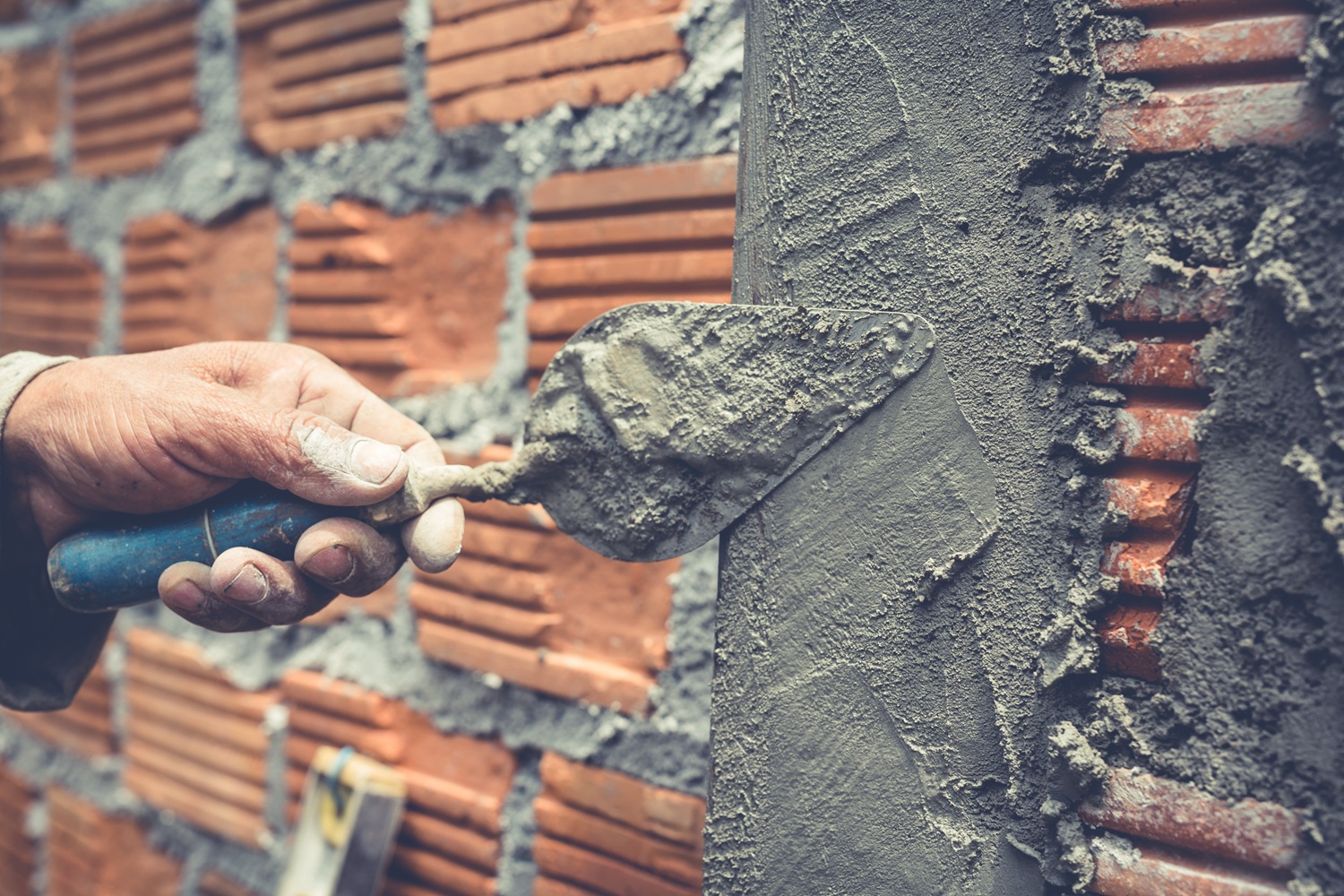
Higher capex, city-led growth and CCUS funding improve demand visibility and decarbonisation prospects for cement
Mumbai
Cement manufacturers have welcomed the Union Budget 2026–27’s strong infrastructure thrust, with public capital expenditure increased to Rs 12.2 trillion, saying it reinforces infrastructure as the central engine of economic growth and strengthens medium-term prospects for the cement sector. In a statement, the Cement Manufacturers’ Association (CMA) has welcomed the Union budget 2026-27 for reinforcing the ambitions for the nation’s growth balancing the aspirations of the people through inclusivity inspired by the vision of Narendra Modi, Prime Minister of India, for a Viksit Bharat by 2047 and Atmanirbharta.
The budget underscores India’s steady economic trajectory over the past 12 years, marked by fiscal discipline, sustained growth and moderate inflation, and offers strong demand visibility for infrastructure linked sectors such as cement.
The Budget’s strong infrastructure push, with public capital expenditure rising from Rs 11.2 trillion in fiscal year 2025–26 to Rs 12.2 trillion in fiscal year 2026–27, recognises infrastructure as the primary anchor for economic growth creating positive prospects for the Indian cement industry and improving long term visibility for the cement sector. The emphasis on Tier 2 and Tier 3 cities with populations above 5 lakh and the creation of City Economic Regions (CERs) with an allocation of Rs 50 billion per CER over five years, should accelerate construction activity across housing, transport and urban services, supporting broad based cement consumption.
Logistics and connectivity measures announced in the budget are particularly significant for the cement industry. The announcement of new dedicated freight corridors, the operationalisation of 20 additional National Waterways over the next five years, the launch of the Coastal Cargo Promotion Scheme to raise the modal share of waterways and coastal shipping from 6 per cent to 12 per cent by 2047, and the development of ship repair ecosystems should enhance multimodal freight efficiency, reduce logistics costs and improve the sector’s carbon footprint. The announcement of seven high speed rail corridors as growth corridors can be expected to further stimulate regional development and construction demand.
Commenting on the budget, Parth Jindal, President, Cement Manufacturers’ Association (CMA), said, “As India advances towards a Viksit Bharat, the three kartavya articulated in the Union Budget provide a clear context for the Nation’s growth and aspirations, combining economic momentum with capacity building and inclusive progress. The Cement Manufacturers’ Association (CMA) appreciates the Union Budget 2026-27 for the continued emphasis on manufacturing competitiveness, urban development and infrastructure modernisation, supported by over 350 reforms spanning GST simplification, labour codes, quality control rationalisation and coordinated deregulation with States. These reforms, alongside the Budget’s focus on Youth Power and domestic manufacturing capacity under Atmanirbharta, stand to strengthen the investment environment for capital intensive sectors such as Cement. The Union Budget 2026-27 reflects the Government’s focus on infrastructure led development emerging as a structural pillar of India’s growth strategy.”
He added, “The Rs 200 billion CCUS outlay for various sectors, including Cement, fundamentally alters the decarbonisation landscape for India’s emissions intensive industries. CCUS is a significant enabler for large scale decarbonisation of industries such as Cement and this intervention directly addresses the technology and cost requirements of the Cement sector in context. The Cement Industry, fully aligned with the Government of India’s Net Zero commitment by 2070, views this support as critical to enabling the adoption and scale up of CCUS technologies while continuing to meet the Country’s long term infrastructure needs.”
Dr Raghavpat Singhania, Vice President, CMA, said, “The government’s sustained infrastructure push supports employment, regional development and stronger local supply chains. Cement manufacturing clusters act as economic anchors across regions, generating livelihoods in construction, logistics and allied sectors. The budget’s focus on inclusive growth, execution and system level enablers creates a supportive environment for responsible and efficient expansion offering opportunities for economic growth and lending momentum to the cement sector. The increase in public capex to Rs 12.2 trillion, the focus on Tier 2 and Tier 3 cities, and the creation of City Economic Regions stand to strengthen the growth of the cement sector. We welcome the budget’s emphasis on tourism, cultural and social infrastructure, which should broaden construction activity across regions. Investments in tourism facilities, heritage and Buddhist circuits, regional connectivity in Purvodaya and North Eastern States, and the strengthening of emergency and trauma care infrastructure in district hospitals reinforce the cement sector’s role in enabling inclusive growth.”
CMA also noted the Government’s continued commitment to fiscal discipline, with the fiscal deficit estimated at 4.3 per cent of GDP in FY27, reinforcing macroeconomic stability and investor confidence.
Concrete
JK Cement Crosses 31 MTPA Capacity with Commissioning of Buxar Plant in Bihar
Published
3 weeks agoon
January 30, 2026By
admin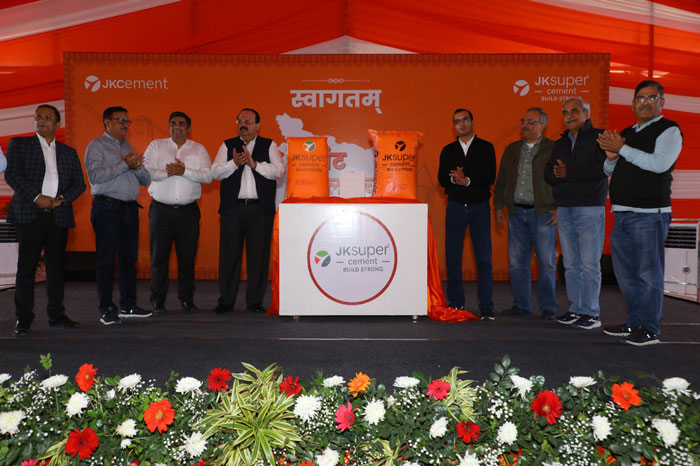
JK Cement has commissioned a 3 MTPA Grey Cement plant in Buxar, Bihar, taking its total capacity to 31.26 MTPA and placing it among India’s top five grey cement producers. The ₹500 crore investment strengthens the company’s national footprint while supporting Bihar’s infrastructure growth and local economic development.
JK Cement Ltd., one of India’s leading cement manufacturers, has announced the commissioning of its new state-of-the-art Grey Cement plant in Buxar, Bihar, marking a significant milestone in the company’s growth trajectory. With the commissioning of this facility, JK Cement’s total production capacity has increased to 31.26 million tonnes per annum (MTPA), enabling the company to cross the 30 MTPA threshold.
This expansion positions JK Cement among the top five Grey Cement manufacturers in India, strengthening its national footprint and reinforcing its long-term growth strategy.
Commenting on the strategic achievement, Dr Raghavpat Singhania, Managing Director, JK Cement, said, “Crossing 31 MTPA is a significant turning point in JK Cement’s expansion and demonstrates the scale, resilience, and aspirations of our company. In addition to making a significant contribution to Bihar’s development vision, the commissioning of our Buxar plant represents a strategic step towards expanding our national footprint. We are committed to developing top-notch manufacturing capabilities that boost India’s infrastructure development and generate long-term benefits for local communities.”
The Buxar plant has a capacity of 3 MTPA and is spread across 100 acres. Strategically located on the Patna–Buxar highway, the facility enables faster and more efficient distribution across Bihar and adjoining regions. While JK Cement entered the Bihar market last year through supplies from its Prayagraj plant, the Buxar facility will now allow the company to serve the state locally, with deliveries possible within 24 hours across Bihar.
Sharing his views on the expansion, Madhavkrishna Singhania, Joint Managing Director & CEO, JK Cement, said, “JK Cement is now among India’s top five producers of grey cement after the Buxar plant commissioning. Our capacity to serve Bihar locally, more effectively, and on a larger scale is strengthened by this facility. Although we had already entered the Bihar market last year using Prayagraj supplies, local manufacturing now enables us to be nearer to our clients and significantly raise service standards throughout the state. Buxar places us at the center of this chance to promote sustainable growth for both the company and the region in Bihar, a high-growth market with strong infrastructure momentum.”
The new facility represents a strategic step in supporting Bihar’s development vision by ensuring faster access to superior quality cement for infrastructure, housing, and commercial projects. JK Cement has invested approximately ₹500 crore in the project. Construction began in March 2025, and commercial production commenced on January 29, 2026.
In addition to strengthening JK Cement’s regional presence, the Buxar plant is expected to generate significant direct and indirect employment opportunities and attract ancillary industries, thereby contributing to the local economy and the broader industrial ecosystem.

FORNNAX Appoints Dieter Jerschl as Sales Partner for Central Europe

Budget 2026–27 infra thrust and CCUS outlay to lift cement sector outlook

Steel: Shielded or Strengthened?

JK Cement Commissions 3 MTPA Buxar Plant, Crosses 31 MTPA

JK Cement Crosses 31 MTPA Capacity with Commissioning of Buxar Plant in Bihar

FORNNAX Appoints Dieter Jerschl as Sales Partner for Central Europe

Budget 2026–27 infra thrust and CCUS outlay to lift cement sector outlook

Steel: Shielded or Strengthened?

JK Cement Commissions 3 MTPA Buxar Plant, Crosses 31 MTPA






